
Your website is often the first impression potential clients will have of your business, so make sure it’s a good one!
When building a new website for your property management company, there are a few key things that you need to make sure are included.
In this article, we will go over the most important things that you should have on your website in order to attract and retain property management clients.
The Importance of Solid Property Management Websites
As a property management company, your website is one of the most important marketing tools that you have.
In today’s digital world, potential clients are going to be looking for your company online. If your website is not up to par, you could be missing out on a lot of business.
A well-designed website can help you to attract new clients and retain existing ones. Your website should be professional, easy to navigate, and informative.
Including key information on your website is also essential in order to give prospective clients the information they need to make an informed decision about working with you.
Let’s explore some more important things to remember when building your company website.
Tips for Building a Property Management Website
1) Speak to your Target Audience
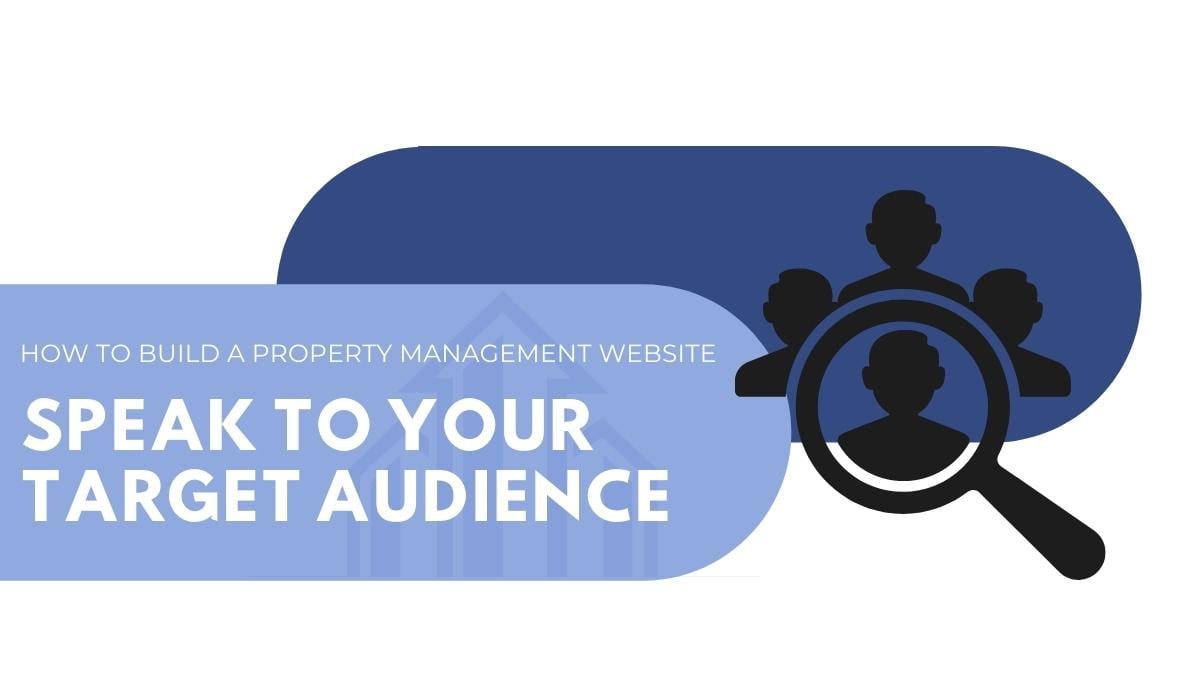
If you’re trying to attract rental property owners, then the content on your homepage should be written to entice rental property owners, not tenants.
The same goes for if you’re targeting commercial property owners, vacation home rental owners, homeowners associations, and so on.
Your website should be designed with your target market in mind.
Some important questions to ask yourself are:
- Who is your target audience?
- What type of property do they own?
- What are they looking for in a property management company?
Answering these questions will help you determine the content and design of your website.
For example, if you’re targeting single-family property owners, they may be looking for a company that is responsive to tenant needs, has a good track record of maintaining properties, and has reasonable fees.
On the other hand, if you’re targeting commercial property owners, they may be looking for a company with experience in managing similar properties, and who knows how to manage a commercial property without disrupting business operations.
2) Have a Call-to-Action on Every Page

Your website should have a clear call-to-action (CTA) on every page. A CTA is a statement or button that encourages website visitors to take a specific action.
For example, your CTA could be “Request a Free Quote” or “Sign Up for a Free Consultation.”
Your CTA should be relevant to the page it’s on. It should also be placed in a prominent location where it can easily be seen. This will help convert more visitors into leads, and eventually, clients.
At Upkeep Media, we build websites for property management companies. Often, we choose to include a sidebar on important pages. One sidebar we like to use is the “Free Rental Pricing Analysis” offer, which stays with the visitor as they scroll down the page.
This offer helps to increase conversion rates by giving the visitor a free service, without feeling like they’re being sold to. It also gives you a contact point for the future by having them provide an email address where the analysis will be sent.
If you’re not sure what kind of CTA would work best for your website, reach out to us and we’d be happy to help!
3) Display your Contact Info and Phone Number
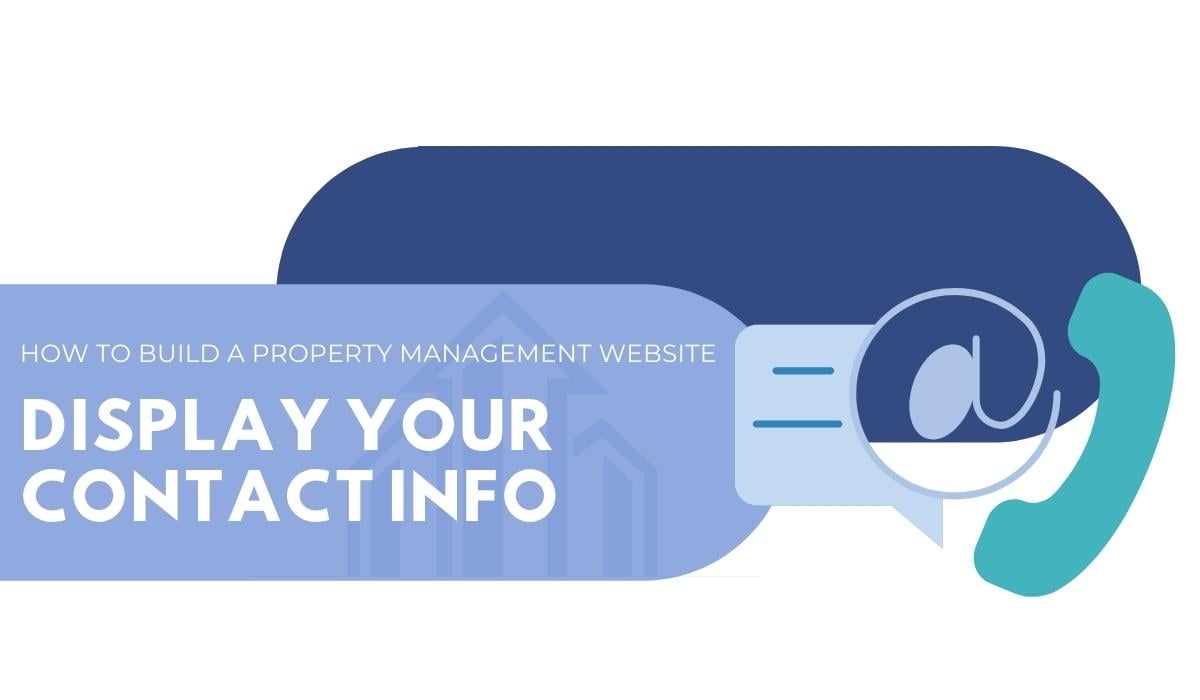
Make it easy for prospective clients to get in touch with you by displaying your contact information prominently on your website.
Your contact information should include your phone number, email address, and physical address (if you have one). You should also include a contact form on your website so that visitors can easily send you a message.
The easier you make it for potential clients to get in touch with you, the more likely they are to do so.
At Upkeep Media, we like to place property management companies’ phone numbers in the header and footer of the website so they’re visible no matter where a visitor is on the site.
We also like to include a contact form on the “Contact Us” page, as well as the company’s email address and physical address.
Finally, we like to include a sticky header on mobile devices that is always displaying your contact info. This way, if someone is checking out your website and decides they want to call you, they can easily do so without having to search for your contact information.
4) Include a Lead Magnet
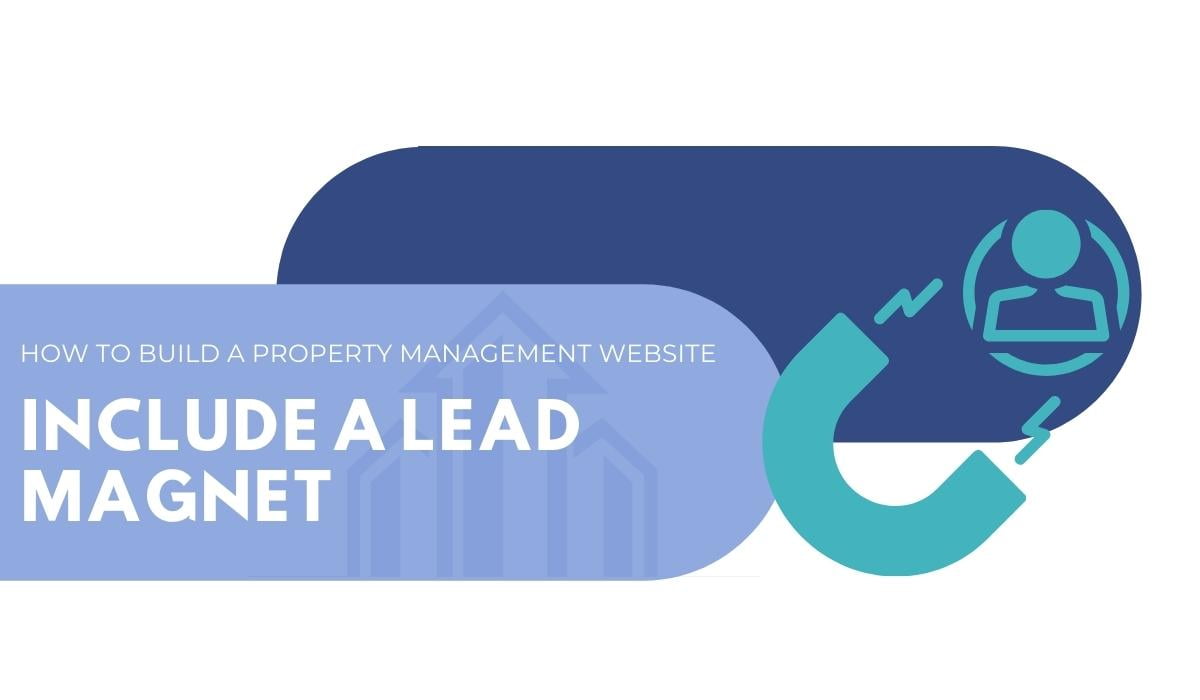
A lead magnet is a free offer that you give to website visitors in exchange for their contact information.
For example, you could offer a free rental price analysis, a free download of a landlord checklist, or a free e-book on how to be a successful property owner.
The lead magnet should be something that would be valuable to your target audience and should be relevant to the services that you offer.
The lead magnet should be placed in a prominent location on your website so that visitors can’t miss it.
By setting up a lead magnet, you’ll be able to capture leads and start building your contact list. You can then use this contact list to market your property management services to potential clients.
5) Use Case Studies to Build Credibility

If you have a list of happy clients, showcase their success stories on your website!
You can do this by writing case studies for clients whom you’ve helped in the past and displaying how exactly you helped them.
Make sure to be specific when writing these case studies and explain how you’ve helped the client. Perhaps they had an apartment complex with many empty units, and you helped fill their vacancies with your tenant screening and marketing services.
Also, be sure to include reviews from your clients in the case studies. If you can, try to get your client’s approval to use their image to go along with the case study. These reviews will help add credibility and show that your services truly do work.
If you don’t have any case studies yet, don’t worry! The best time to start is right now. Start reaching out to past clients and ask if they would be willing to allow you to create a case study based off their experience working with your company.
6) Use Client Testimonials
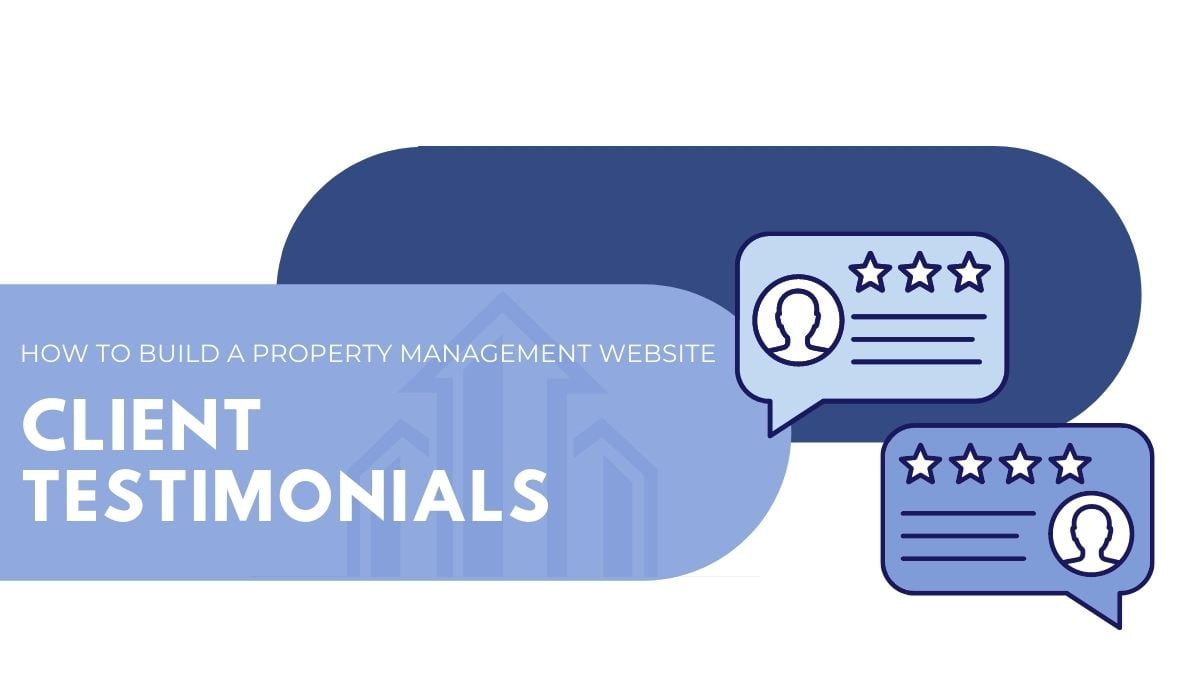
Including testimonials from happy clients on your website is a great way to build credibility and show that your property management services are effective.
When writing testimonials, be sure to include the client’s name and image, if possible. This helps to show that the testimonial is from a real person. You can also display your reviews from sites like Google.
In addition to your website, you can also use testimonials by sharing them on social media or in physical marketing materials such as flyers or direct mail.
No matter how you choose to use them, client testimonials are a valuable asset for any property management company.
If you don’t have enough reviews for your company, you can hire a company that offers reputation management services to help boost the number of reviews that you have.
7) Include an ‘About Us’ Page with your Team Bio
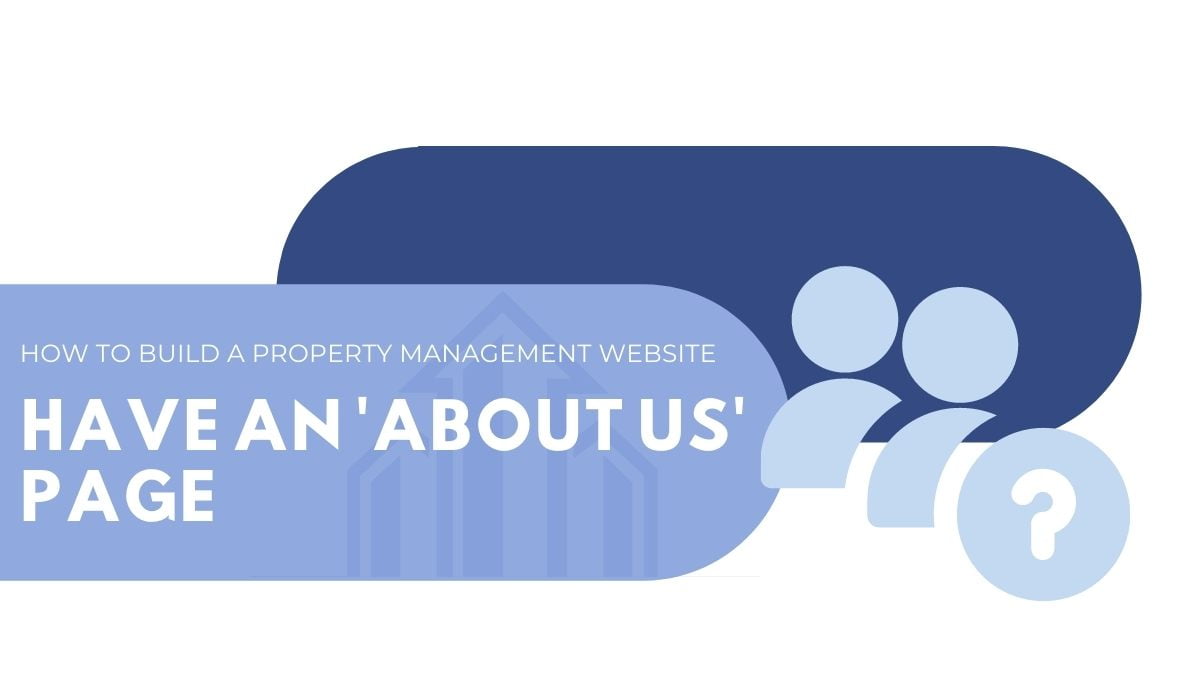
An “About Us” page is a great way to show potential clients who you are and what your company is all about.
On your “About Us” page, include a brief description of your property management company. You can also include your company’s mission statement.
In addition to this, be sure to include photos and bios for each member of your team. This helps potential clients put a face to the name and see that there are real people behind your business.
You can also note your team’s experience and any awards your company has won.
By including an “About Us” page on your website, you’ll be able to build trust with potential clients and show them that you’re a credible source for property management services.
8) Clearly List your Service Areas
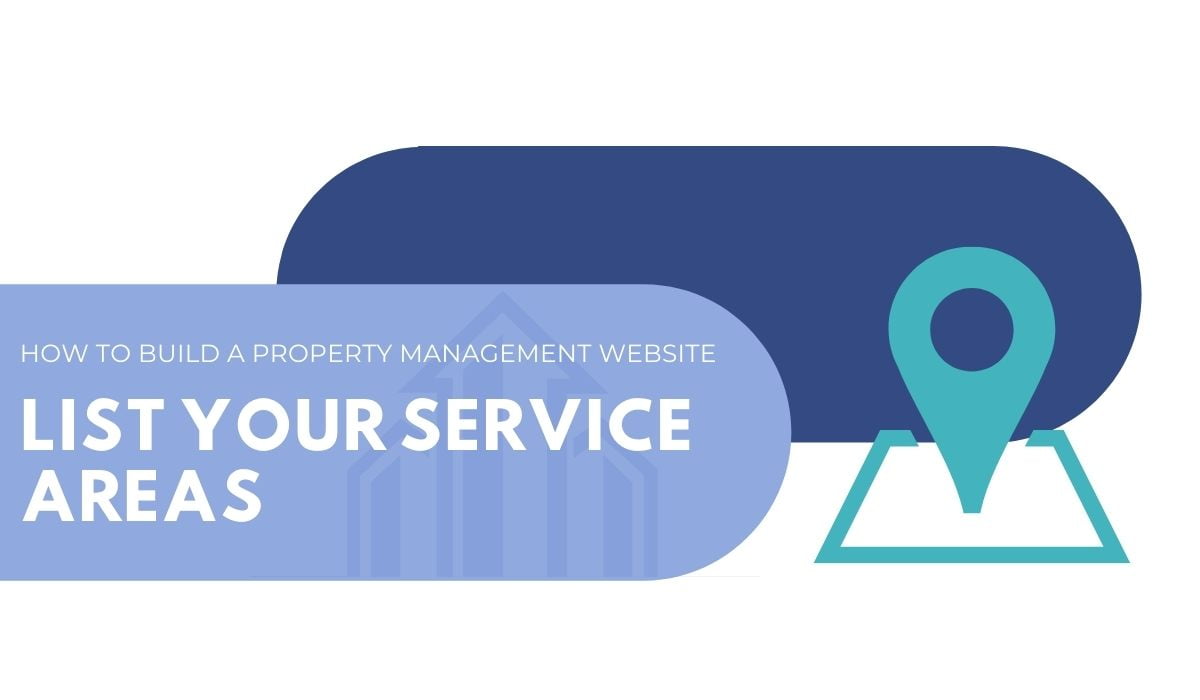
If you want your property management website to rank in search engines, it’s important to include your service areas on your site.
When listing your service areas, be sure to include the city, state, and zip code for each area. You can also include a map of your service area.
Including this information on your website helps potential clients know right away if you’re able to provide services in their area.
It also helps search engines understand where you provide services so that they can show your website to people searching for property management companies in those areas.
By including your service areas on your website, you’ll be able to improve your SEO and attract more landlords to your site.
9) Clearly List the Types of Properties you Manage
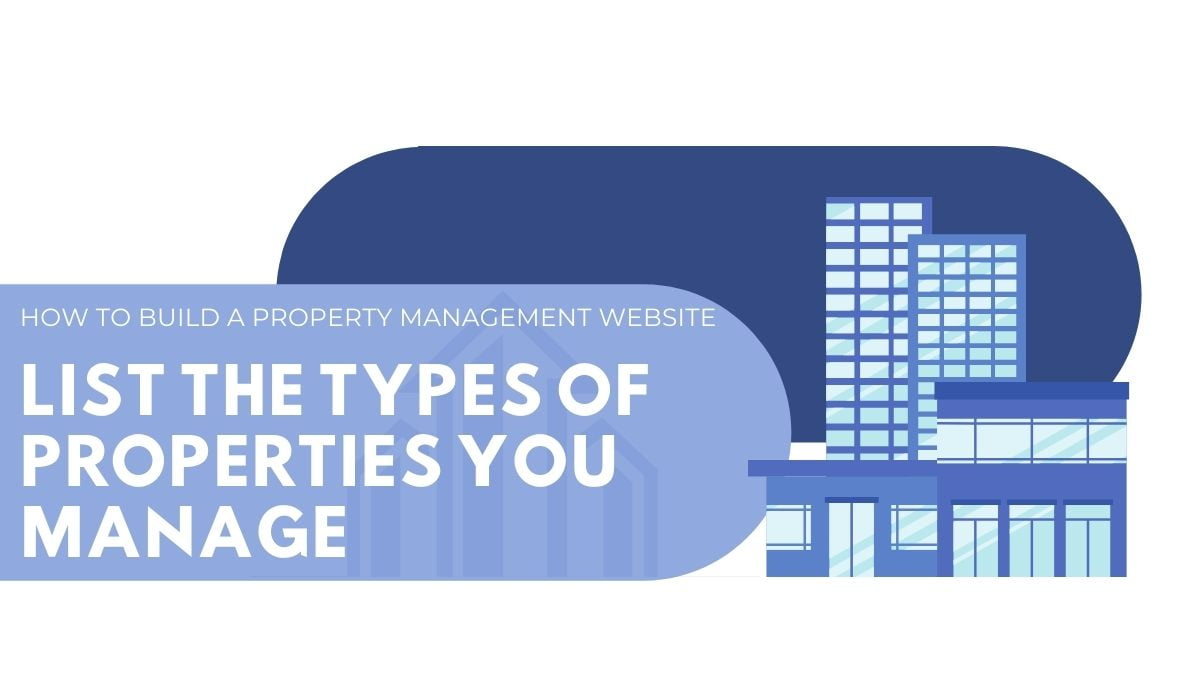
Make sure to explain what types of properties you manage in your portfolio. Make it clear whether you manage vacation rentals, single-family homes, HOAs, multi-family units, or commercial properties.
If you manage multiple types of properties, be sure to list them all out so that potential clients can see that you’re a versatile property management company.
Including this information on your website helps potential clients know right away if you’re able to provide services for their type of property.
It also helps search engines understand what type of properties you manage. This means they can show your website to people searching for property management companies that manage that type of property.
10) Integrate a Live Chat/Texting Tool
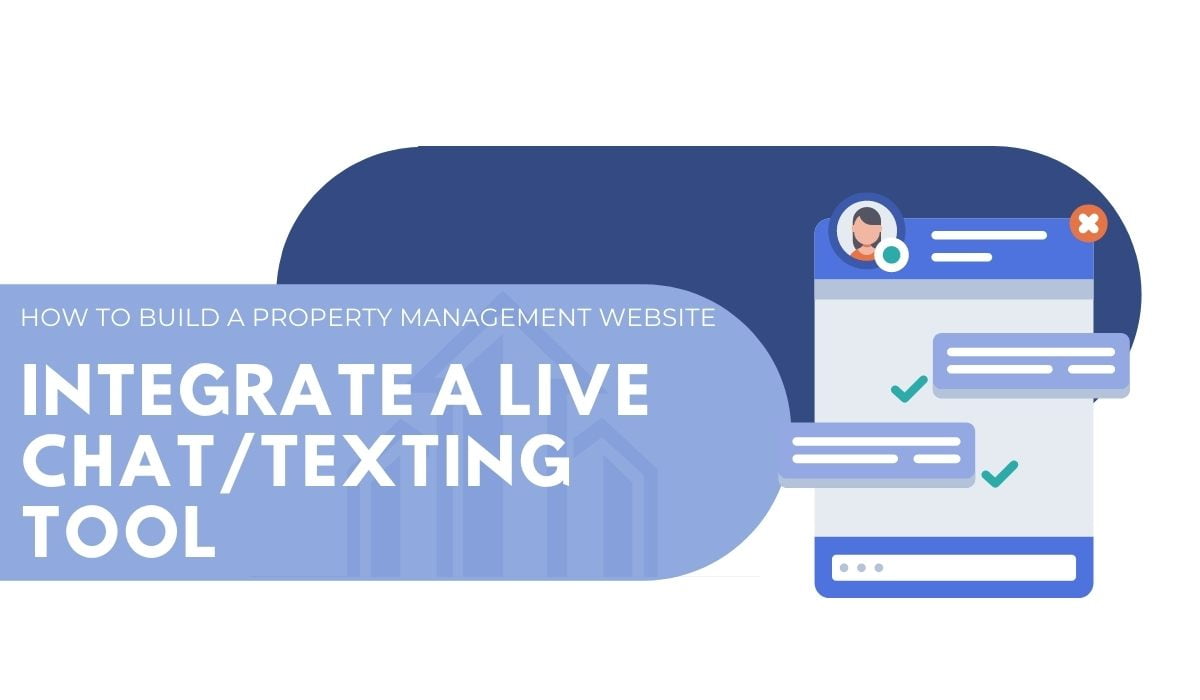
Having a live chat or texting tool on your property management website can help you connect with potential clients in real-time.
With a live chat tool, you can answer questions that potential clients have about your services. You can also use the live chat tool to schedule appointments or consultations.
A texting tool can be used to send automatic text messages to potential clients. For example, you can set up a text message to be sent when a property becomes available for rent.
Both of these tools are valuable for property management companies because they allow you to connect with potential clients in a more personal way.
Upkeep Media offers a live chat integration and texting tool for property management websites. This is a great option for property management companies who want to improve their website and attract more landlords.
By integrating a live chat or texting tool on your property management website, you’ll be able to connect with potential clients instantaneously and provide them with the information they need.
11) Integrate the Website with your Property Management Software
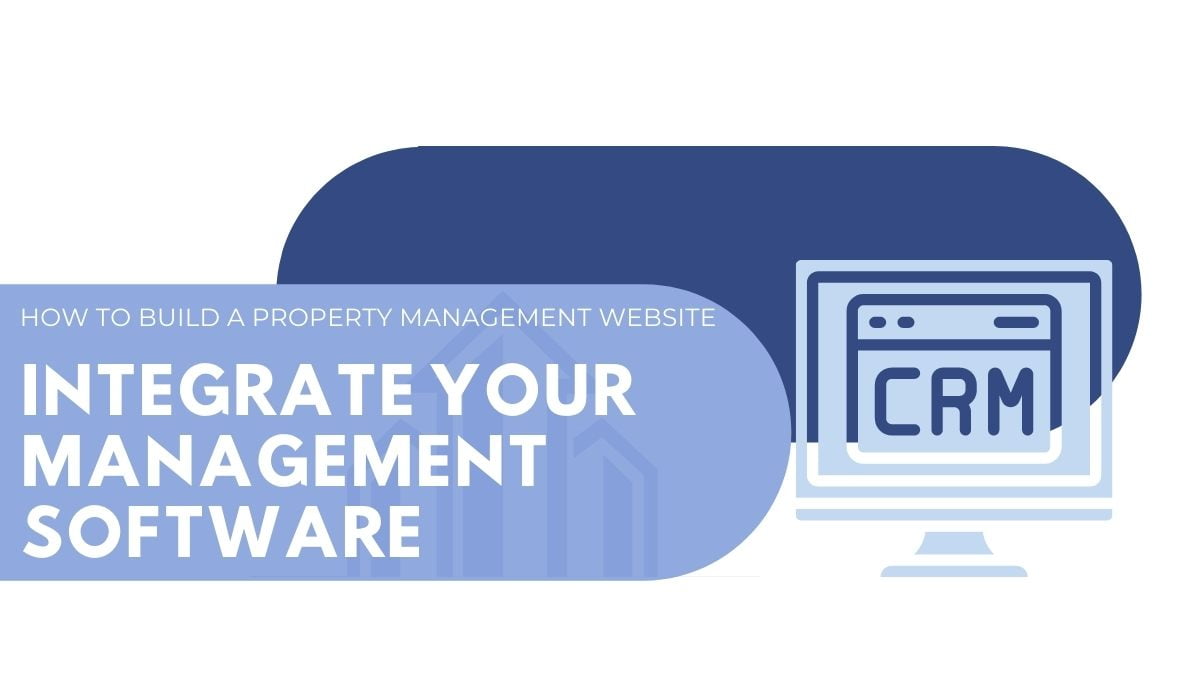
Your property management website should be integrated with your property management software.
This will allow tenants to pay rent online and owners to access their portal to see financial documents.
12) Use a Responsive Design
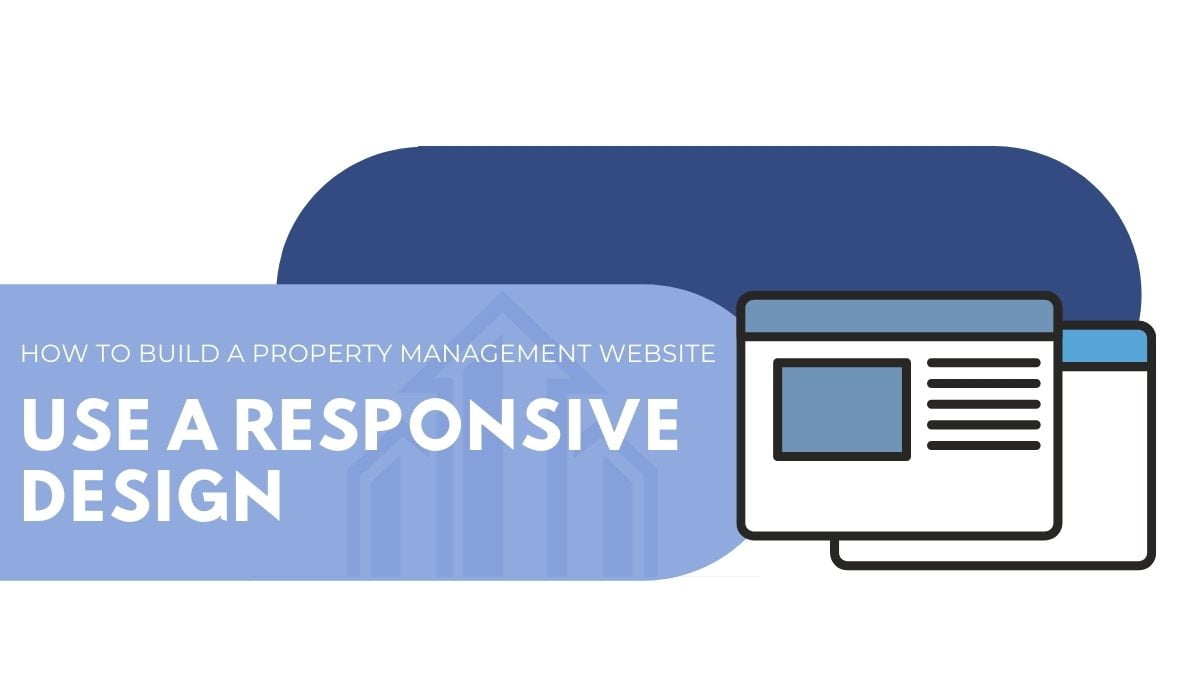
Your property management website should be designed using a responsive design. This means that the website should be able to adjust to fit any screen size, and also be optimized for mobile devices.
13) Include a Blog
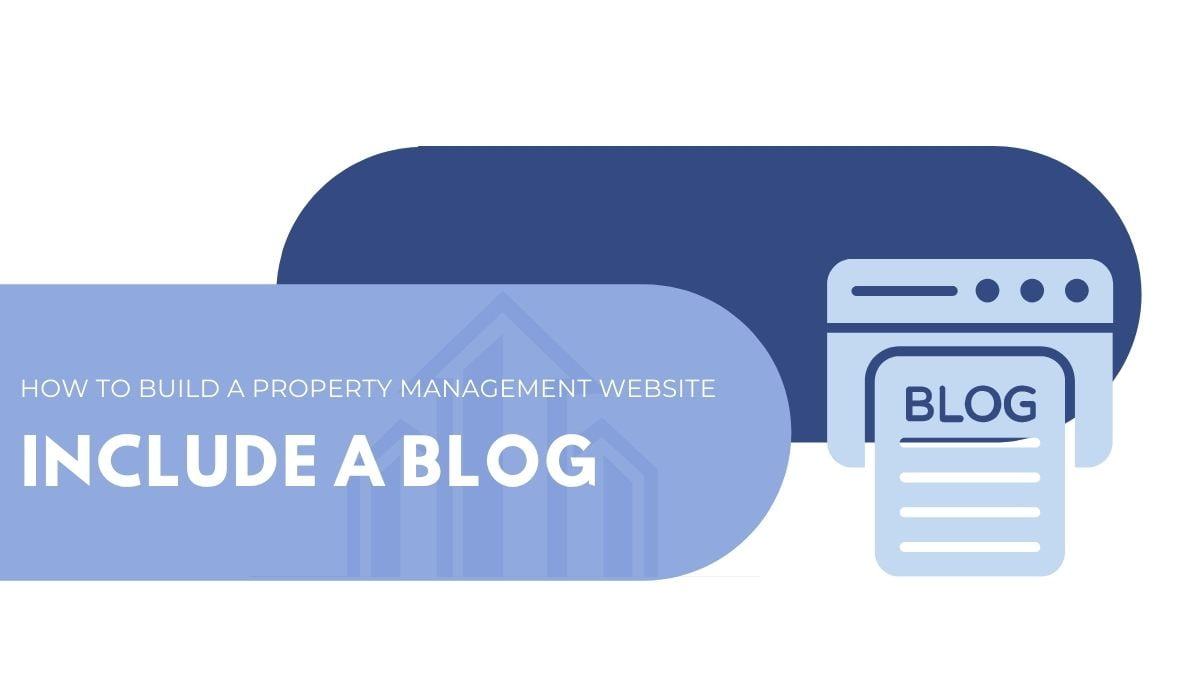
If you want your property management website to rank high in search engines, you should include a blog with consistent content output.
A blog is a great way to share relevant information about your company and industry. Plus, it can help you attract new tenants and owners.
14) Make Sure the Website is Secure
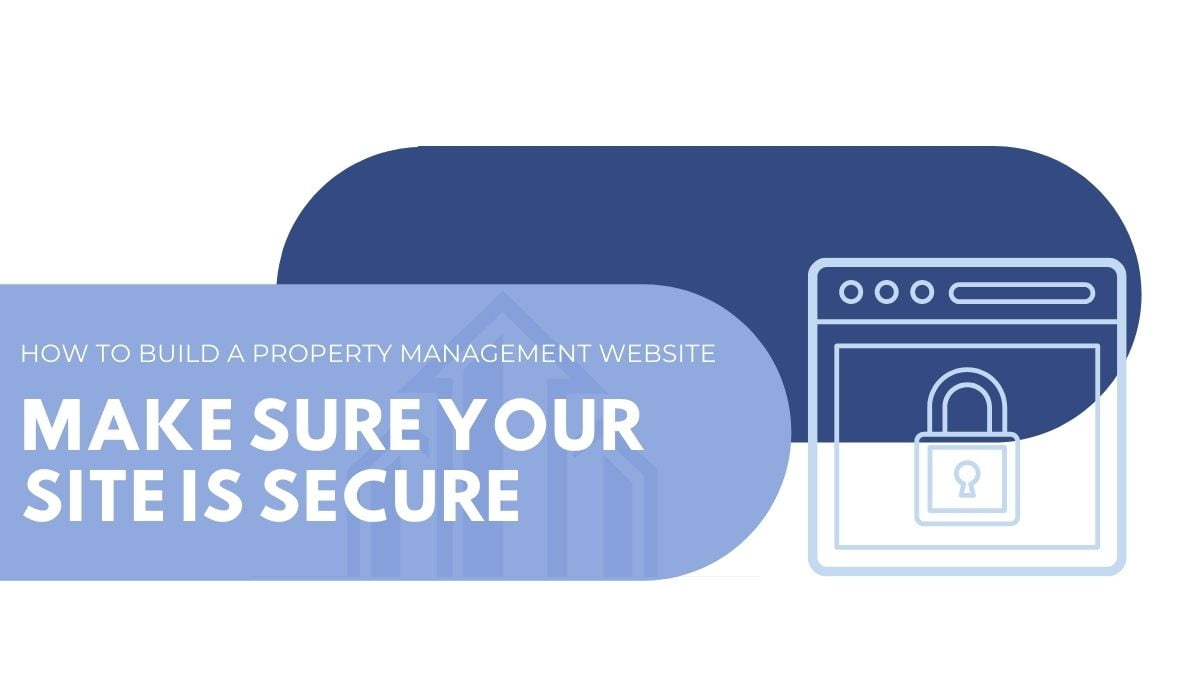
When people are entering personal information on your property management website, they need to know that their information is safe.
Make sure that your website is secured with SSL encryption.
15) Add Social Media Buttons
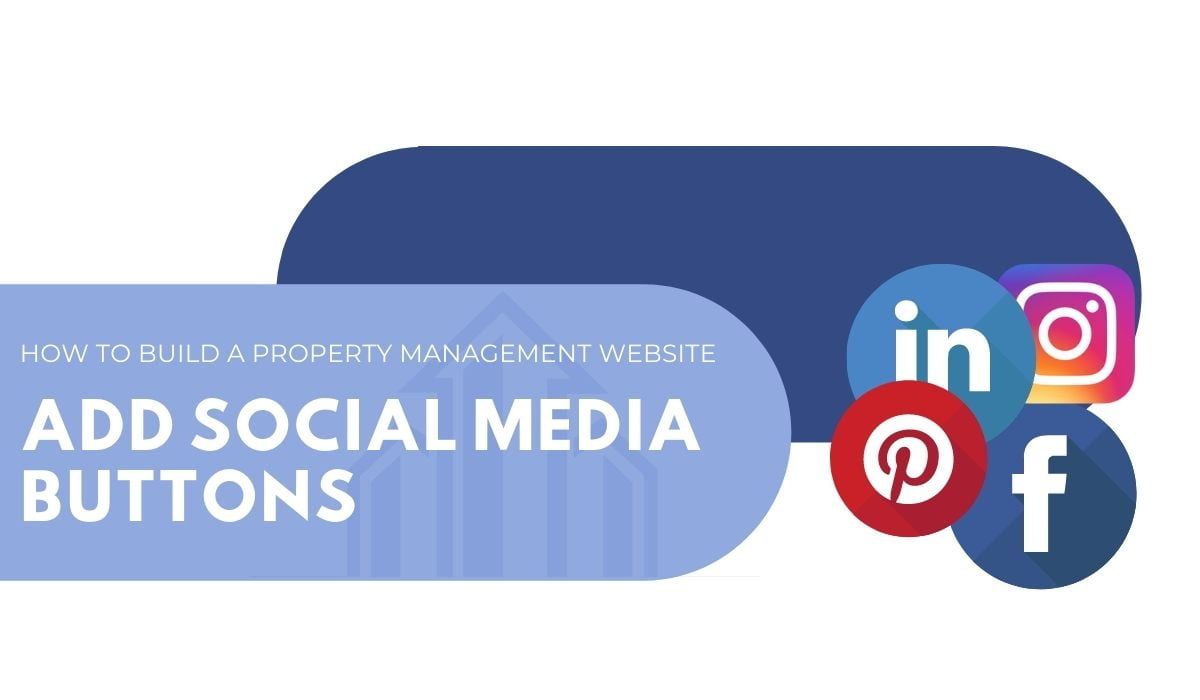
Make it easy for visitors to share your content by adding social media buttons to your property management website. You should also have links to your company’s social media profiles on your website.
You can also use social media sites, like Facebook and Instagram, to drive traffic to your website.
Conclusion: Building a Website for Your Property Management Company
As you can see, there are a lot of things that you need to consider when building a property management website.
However, if you use the tips in this article, you’ll have a property management website that is sure to attract new landlords and tenants.
Upkeep Media can help you build a property management website that is designed to rank high in search engines and attract rental property owners.
We offer a variety of property management website design packages that are sure to fit your needs. Contact us today for a free strategy session call!



